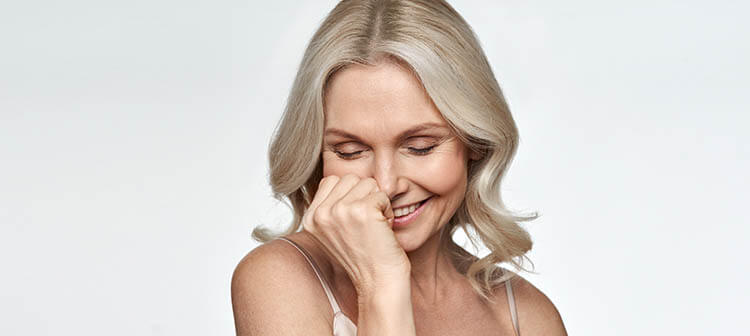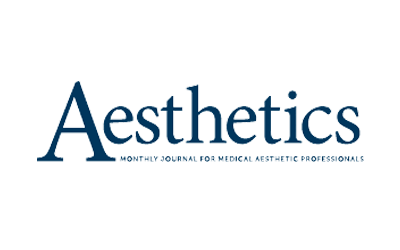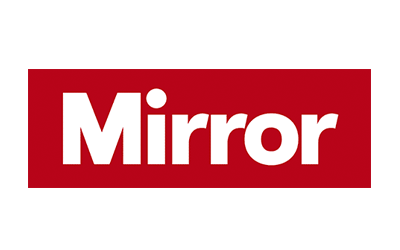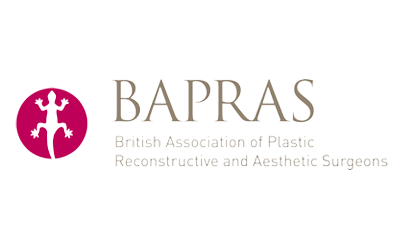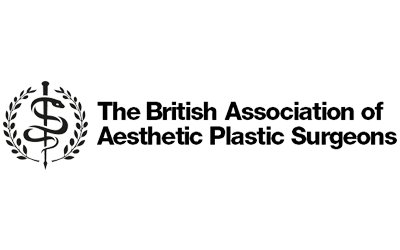Davina McCall recently fronted a new Channel 4 show that delved into realities of the menopause by speaking to doctors and other professionals as well as sharing her own experiences.
As per the NHS website, the menopause – defined as the end of a woman’s menstrual cycles – on average occurs at 51. There is also now more understanding of the perimenopause or menopausal transition period when hormone levels start to fluctuate and decline and which many experts believe can start up to ten years before actual menopause.
According to NICE, about 80% of women in the UK experience the effects of the menopause and women can start to experience these physical and emotional changes related to fluctuating oestrogen and progesterone levels from their early to mid-forties. Symptoms can range from severe anxiety and depression to a whole host of unwelcome physical changes.
Davina’s intention was to change the stigma around menopause and HRT – she was advised not to share that she was taking hormone replacement therapy to deal with the onset of perimenopause at 44 because it would be seen as ‘ageing and unsavoury’. Hormone replacement therapy can be a life-changing treatment, alleviating many common menopausal symptoms including heightened anxiety, joint pain, hot flushes, sleep disturbances and loss of libido.
Practicing self-care is also important – this might sound simple, but anything that makes you feel confident during this period is a plus.
Hydrate, hydrate, hydrate
As hormone levels plummet, one of the first things you may notice is that your skin and hair look dramatically different as they lose the ability to hold moisture. At the same time, our cells become slower to regenerate, resulting in dull, rough skin.
As well as becoming drier, menopausal skin is often more sensitive as the skin barrier becomes more fragile. So, a treatment that increases hydration and promotes cell turnover without being too harsh or abrasive is a must.
What you can do: HydraFacial is a gentle, but highly effective advanced facial treatment. The dermis is intensely hydrated, while at the same time dead skin cells are cleared, leaving the skin looking brighter and plumper. It’s suitable for all skin types, even those with sensitive complexions.
Change it up
Menopausal changes often mean that the skincare products we relied on for decades are no longer what our skin needs.
As our pH levels change, skin becomes more sensitive and menopausal women are more likely to develop rashes and easily irritated skin. Existing skin concerns, such as eczema or rosacea, can worsen. Thinning skin also means that pigmentation changes become more obvious.
As levels of female hormones drop before and during the menopause, some women can experience adult acne after years of blemish-free skin. However, because your skin is now thinner and drier, acne products aimed at younger consumers will be too harsh.
What you can do: arrange a consultation with one of our skincare experts. They will take into account your inherent skin type and any changes you might be experiencing and will then be able to advise you on the optimum skincare protocol. During your follow-up appointments, they will continue to assess any changes and adjust your skincare as required.
Our skincare products contain active ingredients that can be hugely beneficial to menopausal skin:
- Vitamin A helps to normalise and regulate the healthy function of skin cells
- Hyaluronic acid to hydrate and plump
- Peptides stimulate healthy production of collagen and elastin
- Vitamin C strengthens your capillaries
Pump up the volume
Numerous studies have linked declining levels of oestrogen with a whole range of skin changes including a loss of collagen – in fact, it’s been found that a women’s skin loses about 30% of its collagen during the first five years of menopause. After that, decline slows, and they lose about 2% of their collagen annually for the next 20 years.
Collagen provides the support structure to our skin and, as it diminishes, our skin begins to sag, with jowls and folds from the nose to the mouth forming. Dynamic wrinkles that used to only appear when you smiled or frowned become permanently visible. The smooth line between the eyes and cheeks disappears and your pores enlarge.
What you can do: we have a whole range of treatments that can reverse these signs of ageing by working against declining hormone levels to stimulate collagen production. These include energy-based treatments such as Ultherapy that uses ultrasound energy to remodel collagen and elastin fibres in the dermis.
The menopause might be a natural part of ageing, but that doesn’t mean we just have to accept it. Alongside HRT, there are many treatments available that can make a significant difference – both mentally and physically – to our health and wellbeing. For more advice on any of our menopause anti-ageing treatments, call us on 0207 432 8727 to arrange a consultation.
